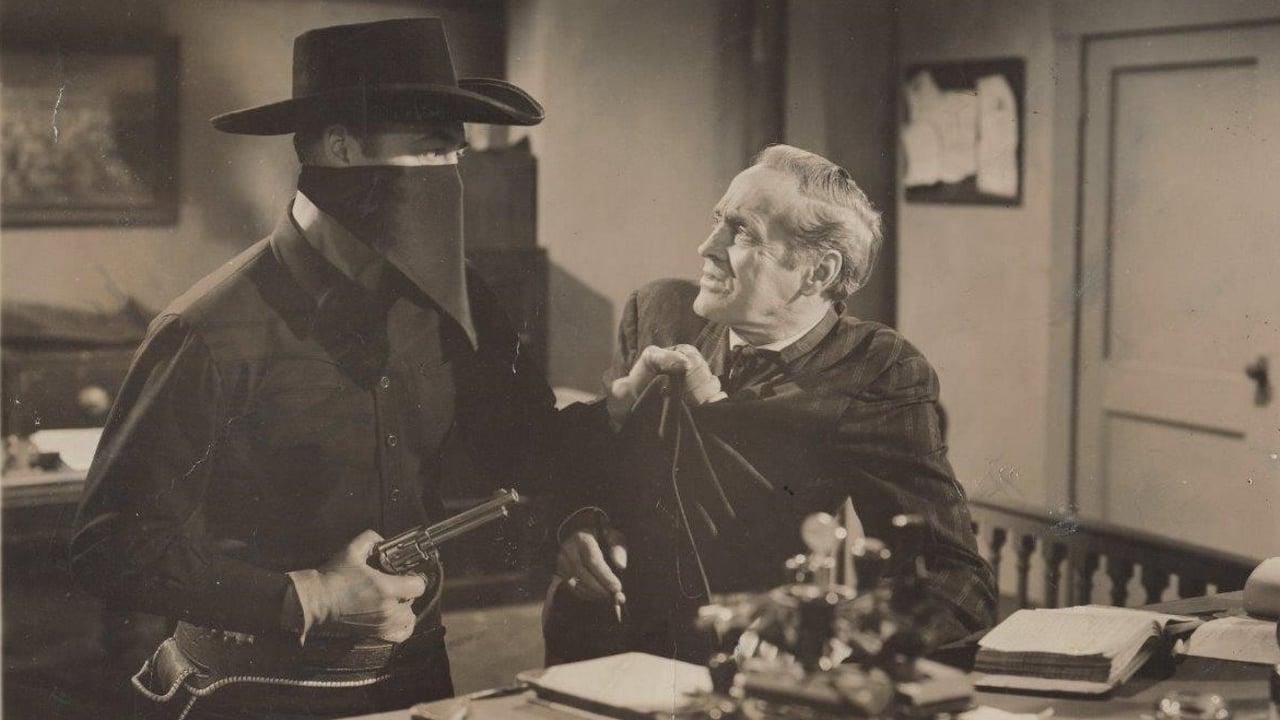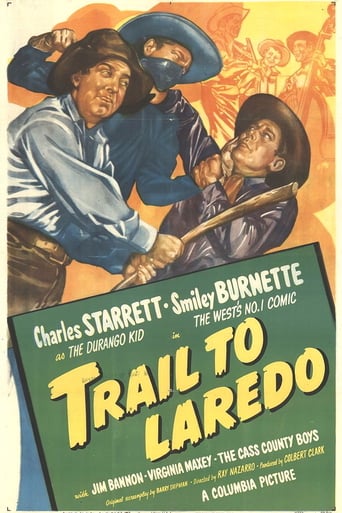Matcollis
This Movie Can Only Be Described With One Word.
Spidersecu
Don't Believe the Hype
BoardChiri
Bad Acting and worse Bad Screenplay
Lidia Draper
Great example of an old-fashioned, pure-at-heart escapist event movie that doesn't pretend to be anything that it's not and has boat loads of fun being its own ludicrous self.
JohnHowardReid
To judge by its longevity, the Durango Kid westerns starring Charles Starrett easily achieve the prize for the most popular western series ever made. I'll admit that towards the end of the trail, both excitement and production values were somewhat less than fans had a right to expect, but this one is definitely a title to seek out and enjoy. Indeed, an excitingly staged saloon brawl with Robert Wilke doing his own stunts – including a spectacular plunge over a table and chair (an obvious double is used for Mr. Starrett in all his more strenuous endeavors) – is excuse enough to add this title to your must-see list. Other action highlights in this lively entry include a couple of chases and a shoot-out with a careering wagon charging through the sheriff's posse, a jail break, a murder and a kidnapping. In addition to the creditable stunt-work, Nazzaro's direction is brisk and shows more traces of style than usual, making liberal use of panning and tracking shots. Film editing is extremely sharp – in fact some fans might say the editing's even too sharp as it often cuts too quickly away from tracking-in shots when those shots have barely commenced. Nevertheless, this stratagem certainly makes for pace. The songs in this one are pleasant enough, but unmemorable. Most of them are put across by Miss Virginia Maxey, who has very little else to do, alas. (This was the first of her only four movie appearances, all in 1948). Photography is adept and production values good.
alexandre michel liberman (tmwest)
This film starts with a narrator saying that you can tell a person by who his friends are, he might be a good person (the screen shows a bunch of good guys) or a bad person (a lot of bad guys) but what can you say about the Durango Kid who is always alone? (the screen shows the Durango Kid in his white horse). Those Charles Starrett-Durango Kid B westerns used to be the most original and enjoyable of the late forties. They always played with the idea that the Kid could be against the law. Smiley Burnette is the comic side kick who keeps trying to be funny, and really does not achieve it, but he is a likeable guy anyhow. There are some good musical numbers and the director Ray Nazarro made some quite good westerns later on.

